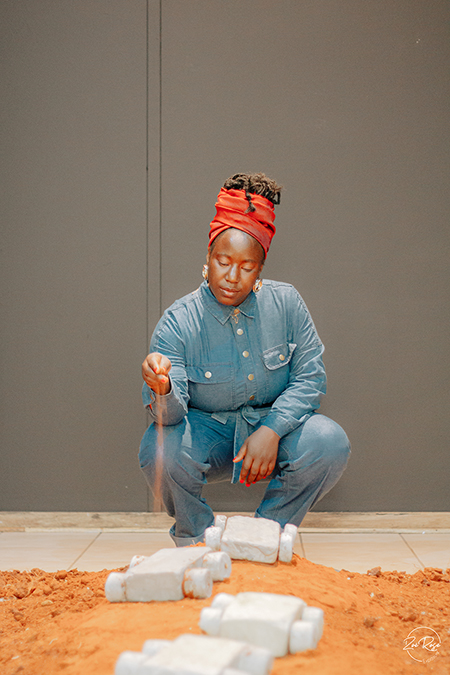Since South Africa went into lockdown last year the North-West University’s (NWU’s) Gallery has been doing its part to keep promoting the arts during the pandemic.
It recently launched two virtual exhibitions: PIM PAM PUM, a solo exhibition by Helena Uambembe, and another exhibition for International Museum Day, featuring artworks from the NWU’s Permanent Art Collection.
Both exhibitions are open until 15 June and can be viewed online.
Forgive and forget
Helena Uambembe’s artwork explores the fictive potential of looking at the past to heal the future.
Through the strategic placement of games and songs that Helena played with her friends as a child, this exhibition explores the subliminal images and narratives within which her own identity was moulded.
The context and speculative scenarios illuminate the act of ‘forgiveness’ and ‘haunting’ and represent the vehicles through which to construct meaning and possible reality. The Potchefstroom iteration becomes the transgression of space and time to explore the need for personal attachment, emotional stability, and permanency in a world where this might not be possible.
Click here to view the exhibition.
International Museum Day
International Museum Day is celebrated annually on 18 May, and this year museums, their professionals, and communities were asked to display works that explore the 2021 theme: “The Future of Museums: Recover and Reimagine”.
In answer to this call, the NWU is displaying artworks depicting innovative solutions for current social, economic and environmental challenges.
This exhibition showcases the NWU Permanent Art Collection, including new acquisitions added to the collection from 2019., Some of the participating artists include Phoka Nyokong, Katlego Tlabela, and Jonel Scholtz as well as some earlier works by Lindeka Qampi, Philimon Hlongwane, Jean Lampen, and Louisemarie Combrink, among many others.
Click here to view the exhibition.
“With this hybrid event we are leaning towards an increased focus on digitisation and the creation of new forms of cultural experience and dissemination. We have also taken this time to collaborate with our immediate communities as this is a pivotal moment for our society, and we call on local museums to embrace it and lead the change,” says Amohelang Mohajane, NWU Gallery curator.

Helena Uambembe, Street Scene. Photo credit: Zoë Rose Exposure
